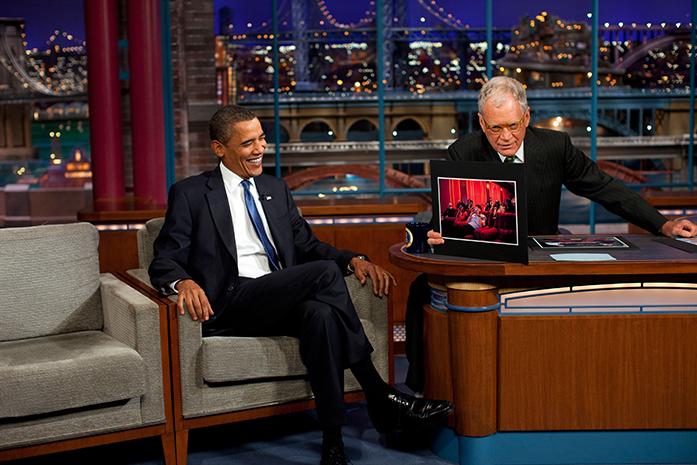Sydney Newton
sydney-newton@uiowa.edu
If you have ever turned on the TV during election time then you’ve probably seen more than one presidential campaign advertisement, and if you watch TV pretty regularly then you might have seen the candidates on popular talk and comedy shows. Sometimes, you might even catch them dancing. Donald Trump, Bernie Sanders, Martin O’Malley, and Rand Paul have all recently had their share of time on talk shows. It’s a thin line between if these are smart campaign strategies or if they are hurtful to a campaign.
Studies show that when candidates appear on “Ellen” or “Saturday Night Live,” it makes them more admirable to millennials and it can show their “softer side” that people wouldn’t usually see in normal platforms, such as the stern debates we are used to seeing the candidates on. It also gives them a chance to be shown to a completely different audience, like the people who might not pay attention to the news as much.
When people see Sanders dancing to mainstream music or Trump making fun of himself with popular comedians, it tends to remind people that, while these people are racing against each other to be the president of the United States, they’re pretty normal. These appearances give the public a better chance to see what your future president is like outside of the usual seriousness.
When they appear on late-night talk shows and address the jokes, etc., that are made about them, it shows they know how to joke and are aware of what people are saying. How they do it though, can get them into hot water. They are able to say things on the talk shows that might not be “appropriate” for the debates.
These remarks aren’t always met with a positive reaction. Most notably and recently, an activist group offered an audience member a cash reward to shout a comment about Donald Trump being racist during his SNL performance. These appearances can be hurtful to a campaign. It gives people a chance to protest and even though it gives the candidates a chance to appeal to a larger audience, the audience could end up having mixed feelings in the end.
If a candidate were to say something offensive or something that came off the wrong way, they’ll potentially have to carry that with them. A small comment here or there is unlikely to make a big impact but with a while until the election, repeated offensive comments are bound to happen and start to make them look bad.
According to NBC, conservatives are less likely to appear on late-night talk shows. An analysis of monologues from the talk shows found that David Letterman and Jon Stewart aimed three out of five jokes at Republicans, while Jay Leno and Jimmy Fallon targeted Democrats in at least two out of three jokes.
With that being said, it could be effective for, let’s say, a Republican to be on a more liberal-based TV show. The appearances can either change people’s minds or confirm their opinions even more. I think it just depends on how well a candidate can speak on the spot and how well they can turn their replies into something positive.



